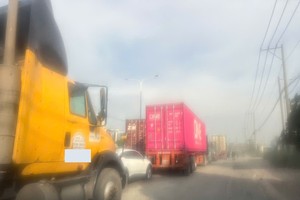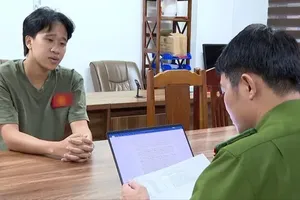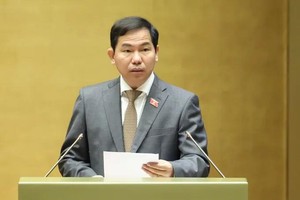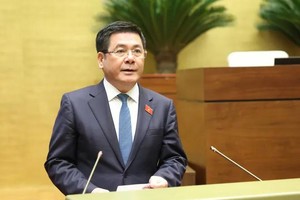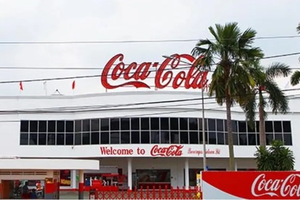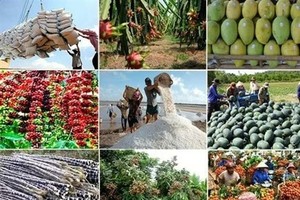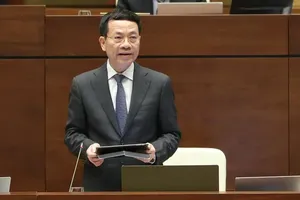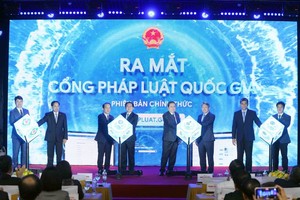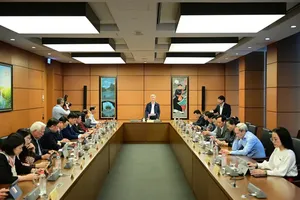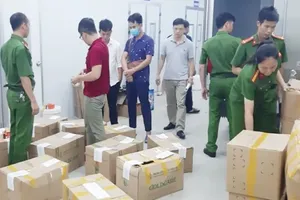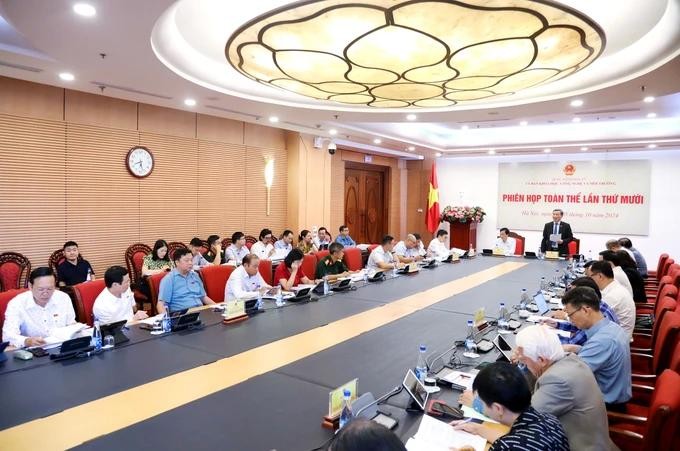
Standing member of the National Assembly's Committee for Science, Technology and Environment Tran Van Khai made the proposal at the 10th plenary session of the committee to review the draft Law on Chemicals (amended).
Representing the agency which has been working on drafting the new regulations, Deputy Minister of Industry and Trade Truong Thanh Hoai stated that the proposed amendments to the Law on Chemicals align closely with four key policies comprising promoting the sustainable development of the chemical industry as a modern and essential sector, implementing comprehensive management of chemicals across their entire life cycle, overseeing hazardous chemicals in products and enhancing the effectiveness of chemical safety measures.
After the review, the Standing Committee of the Science, Technology and Environment Committee basically agreed with the need to promulgate the Law on Chemicals (amended).
The Science, Technology and Environment Committee's Standing Committee proposed policies to encourage investment in and application of environmentally friendly chemicals. These policies would support green growth and a circular economy. The governing body for Science, Technology and Environment also suggested detailed policies for promoting biological pesticides and clarifying the distinction between preferential policies and state-funded investments.
Regarding the management of chemical activities, the inspection agency proposed to supplement regulations on the conditions for organizations and individuals to transport chemicals; granting licenses to transport chemicals; responsibilities of organizations and individuals transporting chemicals to prevent chemical incidents that affect the environment and human health.
Standing Committee member Tran Van Khai expressed concern about the lax management of toxic chemicals. He advocated for stricter market controls and a reduction in the number of users. Additionally, he suggested improving production technology to minimize the use of these chemicals.
He noted that buying and selling of chemicals have gone viral amongst numerous groups on the social media platform Facebook. With just a click on the mouse, a person simply searches on social networking sites or online forums to find individuals who sell cyanide at low prices. Transactions occur swiftly and discreetly, often without any form of regulation or registration.
In contrast, several countries have imposed complete bans on cyanide production due to its harmful effects on the environment. Mr. Khai emphasized the need to tighten market supply and regulate the number of users. Additionally, he advocated for advancements in production technology and a gradual reduction in the applications of this chemical.
Tran Van Khai also urged the drafting agency to conduct a thorough review and assessment to clarify the processes associated with all chemical activities. A clear definition of the roles and responsibilities of local leaders in addressing the issue of illegal trading and the use of toxic chemicals is essential to define and assign responsibilities among ministries, agencies, and local authorities to ensure transparency, and facilitate accountability in the event of unforeseen incidents related to chemical activities.
Delegate Thai Thi An Chung from the Central Province of Nghe An voiced her opinion about the need for the draft law committee to more clearly define the responsibilities of local leaders, officials, and units. This would help avoid unintended consequences from the purchase and use of toxic chemicals.


